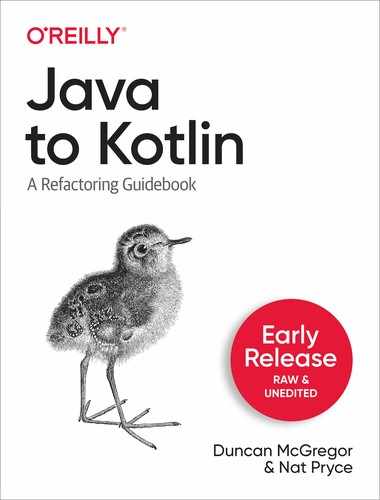Book Description
Kotlin has raised the bar for programming languages on the Java Virtual Machine with its compatibility, readability, efficiency, and tool support. But adopting a new language can be daunting, especially when you're working with business-critical Java code that must meet changing requirements.
This book takes a novel approach to introducing Kotlin to Java programmers: showing you how to gradually refactor Java code to idiomatic Kotlin while continuing to evolve its functionality. But converting Java to Kotlin is just the starting point. Kotlin has many features beyond Java.
Using worked examples, authors Duncan McGregor and Nat Pryce guide you through honing the converted code to make it simpler, more efficient, more expressive, and easier to change. You'll learn how to take advantage of functional constructs to improve program structure, reliability, and error handling.
Once you finish this book, you'll be confident writing Kotlin from scratch, converting your existing Java when appropriate, and managing a mixed Java-Kotlin codebase as it evolves over time.
Table of Contents
- Preface
- 1. Introduction
- 2. Java To Kotlin Projects
- 3. Beans to Values
